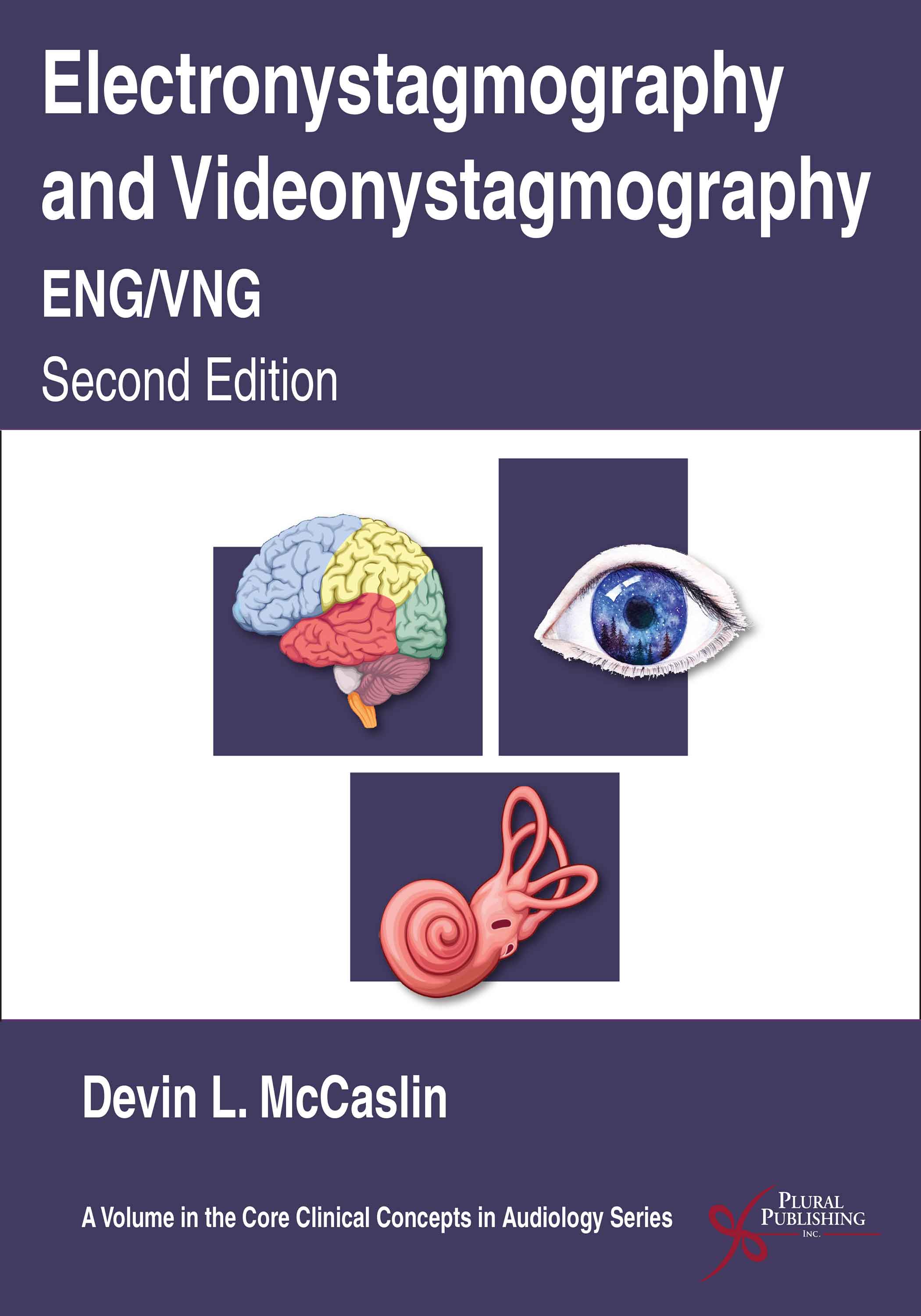
Electronystagmography and Videonystagmography (ENG/VNG)
Second Edition
Devin L. McCaslin
Details: 278 pages, B&W, Softcover, 8.5" x 11", Includes videos
ISBN13: 978-1-63550-081-3
© 2020 | Available
For Instructors
Purchase
Earn CEUs for taking the AudiologyOnline.com course based on this book.
CEUs/Hours Offered: AAA/1.25 Intermediate; ACAud/12.5; AHIP/12.5; BAA/12.5; CAA/12.5; Calif SLPAB/12.5; IACET/1.3; IHS/12.5; Kansas, LTS-S0035/12.5; NZAS/3.0; SAC/12.5
A Volume in the Core Clinical Concepts in Audiology Series.
Electronystagmography and Videonystagmography (ENG/VNG), Second Edition remains a practical and portable resource for conducting and interpreting the electronystamography/videonystagmography examination.
In order to provide a foundation for understanding ENG/VNG test results, the early sections of the text are dedicated to a description of normal and impaired peripheral and central vestibular system function. Also addressed is the process of central nervous system compensation. These sections are followed by a description and interpretation of the ENG/VNG subtests including: an expanded ocular motor testing section, positional/ing testing, and caloric testing. The text now also includes a chapter describing the most common disorders causing dizziness and provides the diagnostic criterion for each. Finally, examples of counseling materials and illustrative case studies that serve to highlight the principles and techniques covered in the manual are provided.
Graduate students and practicing clinicians will benefit from this unitary source for protocols and procedures required for completing an ENG/VNG examination.
New to the Second Edition
- New illustrations demonstrating key concepts within the text
- New and updated references throughout
- New chapters describing common disorders
- Updated and expanded chapter on ocular motor function
- 10 cases with 17 videos accessible on a PluralPlus companion website
From the Foreword
"Now we have before us the second edition of Dr. McCaslin’s book, and it’s even better than the first. Same firsthand clinical experience, same serious scholarship, same lucid writing, but now there’s updated and expanded information on eye movement neurophysiology and a new set of illustrations. Also new is a whole chapter listing common (and some not so common) dizziness-causing disorders. Dr. McCaslin has outdone himself here. For each disorder, he provides historical background, pathophysiology, clinical presentation, laboratory findings, and treatment. He also provides several useful appendices—a dizziness questionnaire, suggested alerting tasks to be used during caloric testing, and a table listing reliability and localizing value of various ENG/VNG findings.
Who is this book for? It should be required reading for all clinicians who perform ENG/VNG and for all students who aspire to do so. It should also be read by referring physicians. ENG/VNG test results alone rarely yield a diagnosis, but they often provide useful information to physicians who understand their implications and relate them to other medical data available for diagnosis. One need not look elsewhere to find cogent descriptions of ENG/VNG results and their implications. They’re in this book. I learned a lot. You will, too."
—Charles W. Stockwell, PhD
View a sample video from the accompanying website:
Review
"The second edition of this book by Devin L. McCaslin is an excellent resource to add to one’s personal (or professional) library, whether a student, novice audiologist, or experienced audiologist. This book is written concisely yet still can dive deeper into important topics (such as some of the more technical aspects of performing a VNG/ENG). […]
As a newer instructor of doctoral-level students for vestibular assessment and management, I enjoy using this book for the material in my lectures and as a resource for the students. In addition, compared to some of the other great vestibular books, this book has the most significant number of images, diagrams, and tables for succinctly summarizing information – something that I know students (and instructors) find valuable.
The first edition of this book was approximately 200 pages, and the second edition is nearly 300 pages, so a good amount of new or updated information has been added to the second edition. In addition to incorporating new references throughout, this edition has more illustrations, a chapter dedicated to common vestibular disorders, and a companion website from the publisher with 10 cases (including 17 videos to help support learning).
If someone in the field of Audiology was looking to add videonystagmography (VNG) or electronystagmography (ENG) to their clinical practice, this is one of the best books available to walk you through most of what you need to know for these vestibular assessments. […]"
–Michael Vekasi, AuD, R.Aud, Aud(C), FAAA, A.T. Still University, in Canadian Audiology (November 2021)
Foreword
Preface
Acknowledgments
Videos
Chapter 1. Neural Control of Eye Movements
Introduction
Hierarchy of Oculomtor System
The Final Common Pathway of the Oculomotor System
The Functional Classes of Eye Movements
Eye Movements that Keep the Fovea Fixed on a Target
Optokinetic System
Chapter 2. Anatomy and Physiology of the Vestibular System
Introduction
The Sensory Transduction of the Peripheral System
Vestibular Hair Cells
Semicircular Canal Anatomy and Physiology
Otolith Organ Anatomy and Physiology
Primary Vestibular Afferent Projections
Anatomy of the Central Vestibular System
Vestibular Nystagmus Generated by Head Movement
The VOR during Sustained Movement
Peripheral Vestibular Impairment and Central Nervous System Compensation
Impaired Central Nervous System Compensation
Laws of Compensation
Chapter 3. Pretest Procedures for VNG
Introduction
Case History
The Dizziness Symptom Profile (DSP)
Assessment of Dizziness Handicap
Bedside Evaluation of the Ocular Motor System
Otoscopic Examination
The VNG Environment
Chapter 4. Eye Movement Examination
Introduction
Instrumentation
EOG/ENG: Corneoretinal Potential
Using the CRP to Record Eye Movements
Voluntary Saccade Test
Gaze Test
Smooth Pursuit Tracking Test
Optokinetic Test
Chapter 5. Positional Testing
Static Positional Testing
Positioning Testing
Treatment of Benign Paroxysmal Positioning Vertigo
Chapter 6. The Caloric Test
Introduction
Caloric Stimulation of the Vestibular System
Components of the Caloric Test
Instrumentation
Preparation for the Caloric Test
Procedure for Conducting the Alternating Binaural Bithermal Caloric Test (Water and Air)
Caloric Test Technique
Analysis of Caloric Responses
Interpretation of Caloric Responses
Summary: Significance of a Directional Preponderance
Technical Tips for Caloric Testing
Chapter 7. Common Vestibular Disorders: Clinical Presentation
Introduction
Common Disorders Causing Dizziness
Appendix A. Dizziness Questionnaire
Appendix B. Understanding Dizziness
Appendix C. Pediatric Literature for Understanding Dizziness
Appendix D. Example Alerting Tasks for Vestibular Testing
Appendix E. Reliability and Localizing Value of VNG Findings
References
Index
Videos
This book comes with supplementary case videos on a PluralPlus companion website.
Case 1: Downbeat Gaze Nystagmus (1 video)
Case 2: Bidirectional Gaze-Evoked Nystagmus (2 videos)
Case 3: Hypermetric Saccades (1 video)
Case 4: Infantile Nystagmus (2 videos)
Case 5: Ocular Flutter (1 video)
Case 6: Slow Saccades (2 videos)
Case 7: Spontaneous Vestibular Nystagmus (4 videos)
Case 8: Posterior Canal Benign Paroxysmal Positional Vertigo (1 video)
Case 9: Square Wave Jerks (1 video)
Case 10: Geotropic Horizontal Canal Benign Paroxysmal Positional Vertigo (2 videos)
Purchase of Electronystagmography/Videonystagmography (ENG/VNG), Second Edition comes with access to case videos on a PluralPlus companion website. To access the videos, you must register the access code (see inside front cover of the book) on the companion website and log in.
Videos
Case 1: Downbeat Gaze Nystagmus (1 video)
Case 2: Bidirectional Gaze-Evoked Nystagmus (2 videos)
Case 3: Hypermetric Saccades (1 video)
Case 4: Infantile Nystagmus (2 videos)
Case 5: Ocular Flutter (1 video)
Case 6: Slow Saccades (2 videos)
Case 7: Spontaneous Vestibular Nystagmus (4 videos)
Case 8: Posterior Canal Benign Paroxysmal Positional Vertigo (1 video)
Case 9: Square Wave Jerks (1 video)
Case 10: Geotropic Horizontal Canal Benign Paroxysmal Positional Vertigo (2 videos)
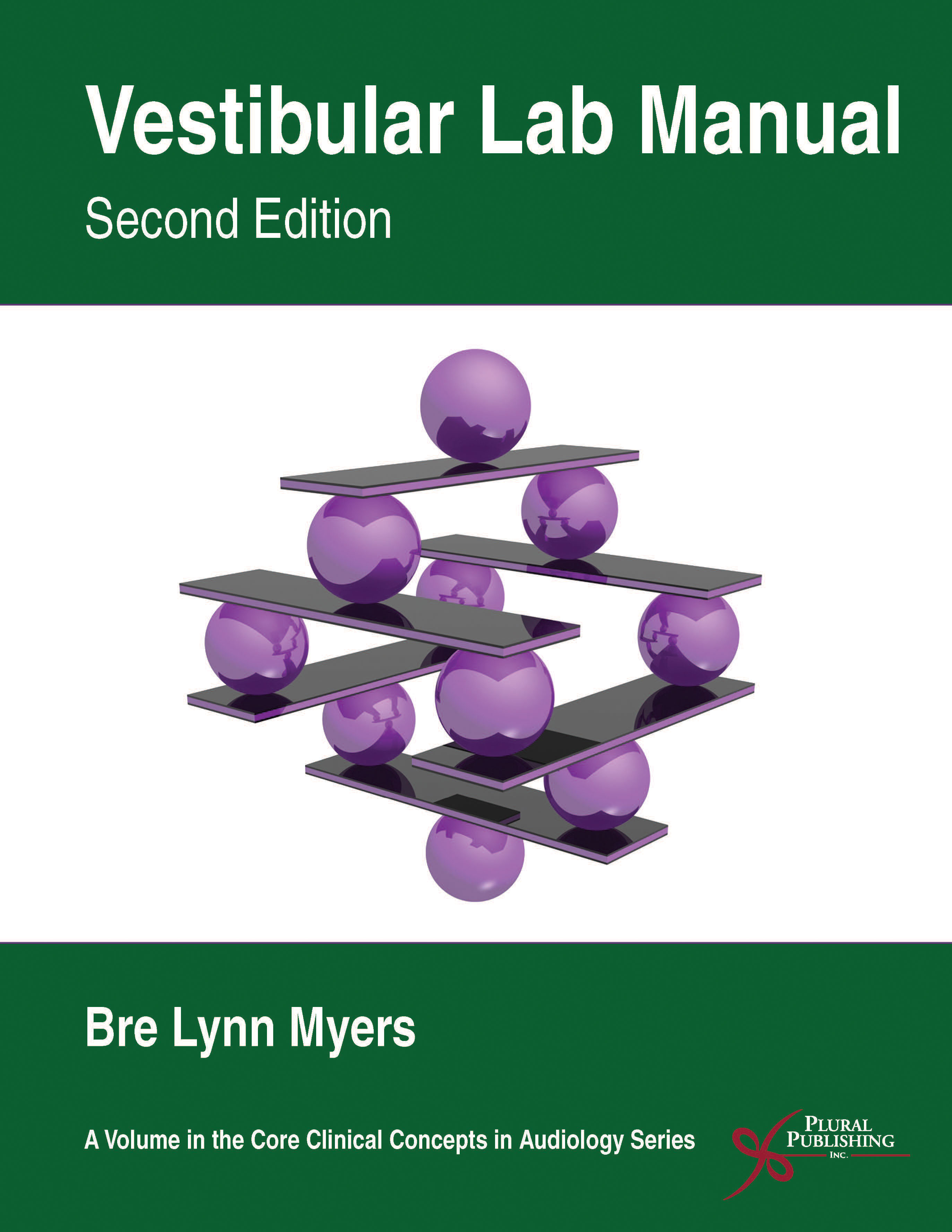
Vestibular Lab Manual
Second Edition
Bre Lynn Myers
Details: 170 pages, B&W, Spiral Bound, 8.5" x 11"
ISBN13: 978-1-63550-080-6
© 2020 | Available
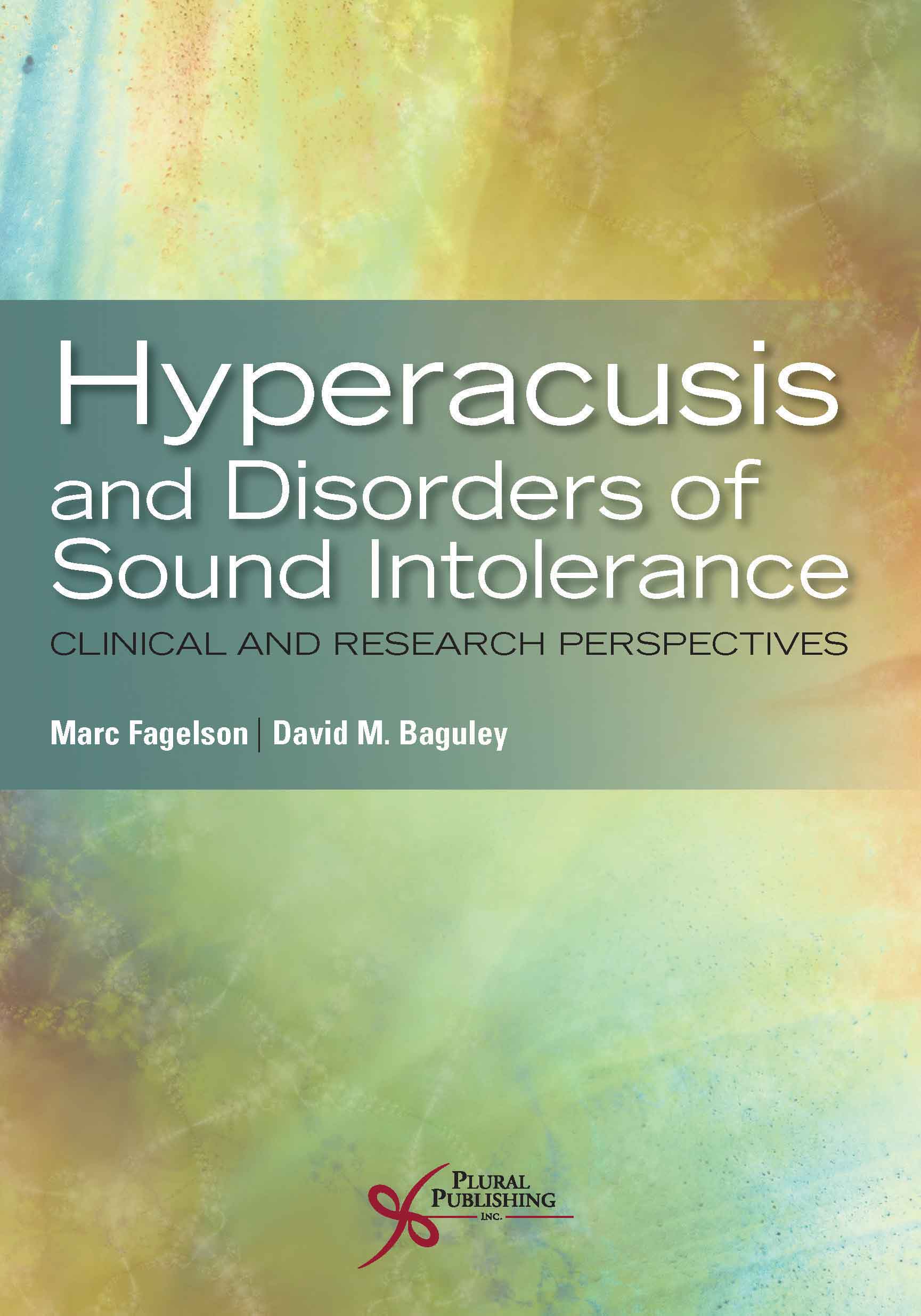
Hyperacusis and Disorders of Sound Intolerance: Clinical and Research Perspectives
First Edition
Marc Fagelson, David M. Baguley
Details: 280 pages, B&W, Softcover, 7" x 10"
ISBN13: 978-1-94488-328-7
© 2018 | Available
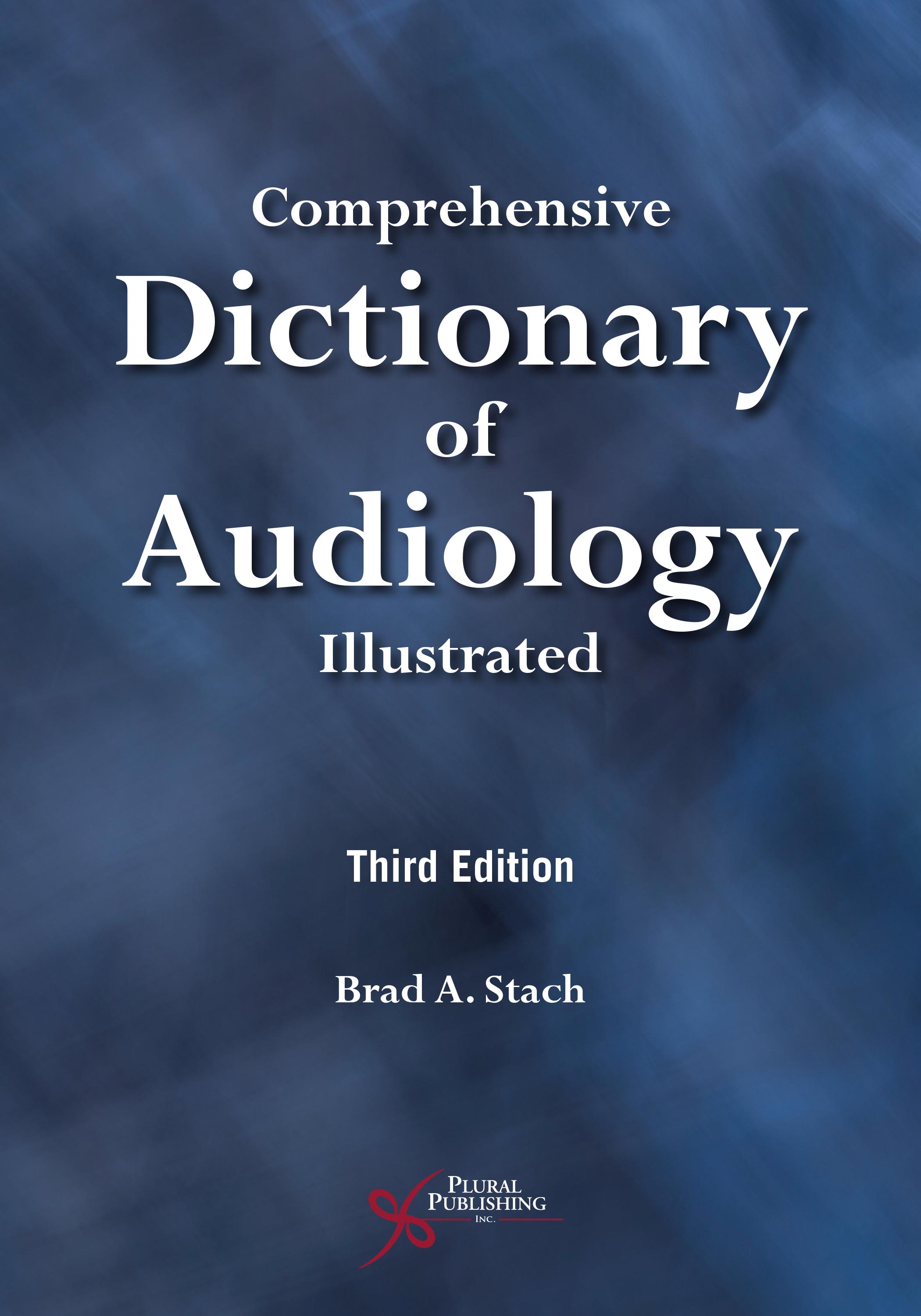
Comprehensive Dictionary of Audiology: Illustrated
Third Edition
Brad A. Stach
Details: 349 pages, B&W, Softcover, 7" x 10"
ISBN13: 978-1-94488-389-8
© 2019 | Available
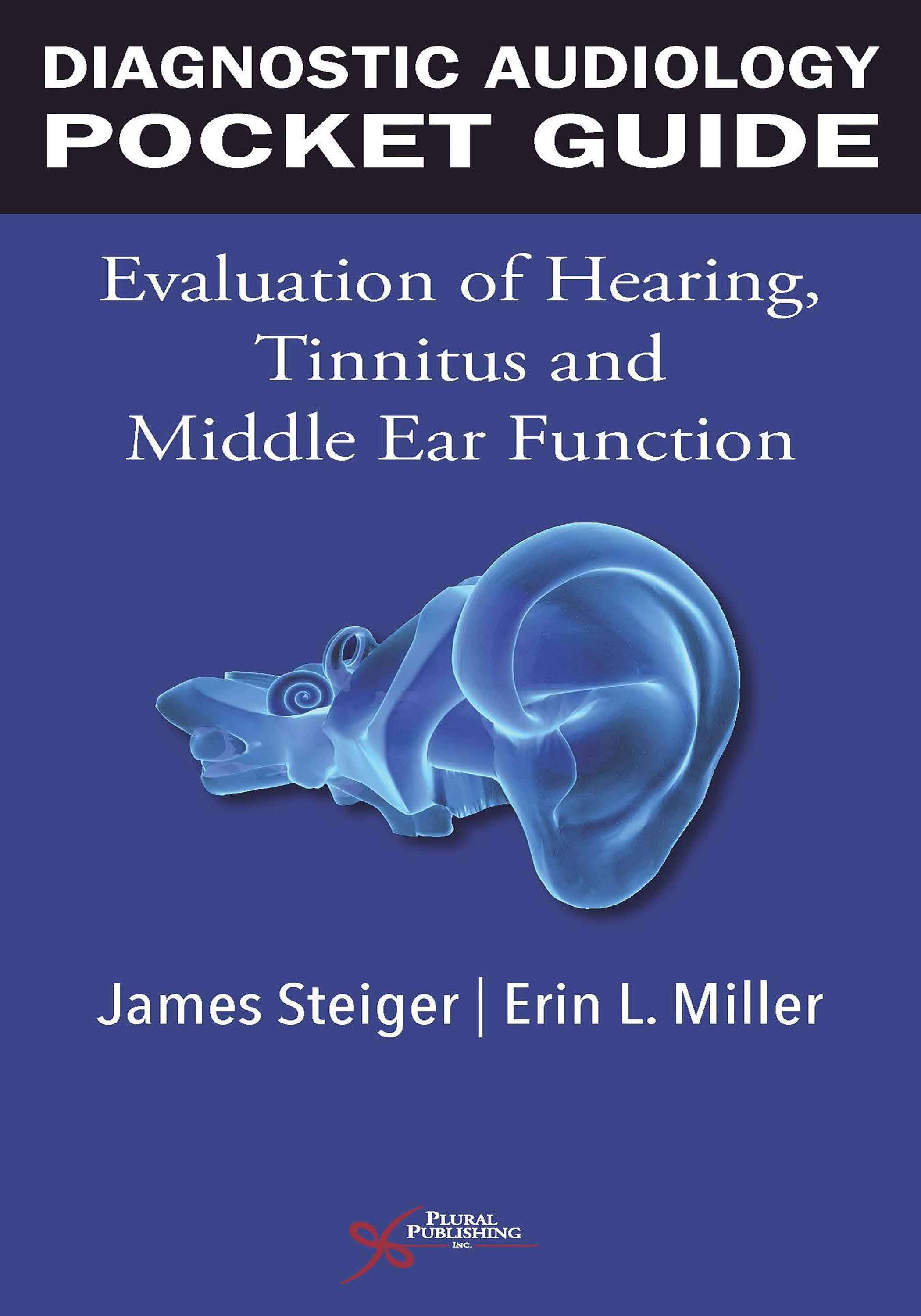
Diagnostic Audiology Pocket Guide: Evaluation of Hearing, Tinnitus, and Middle Ear Function
First Edition
James Steiger, Erin L. Miller
Details: 373 pages, B&W, Softcover, 4.5" x 8"
ISBN13: 978-1-94488-397-3
© 2017 | Available
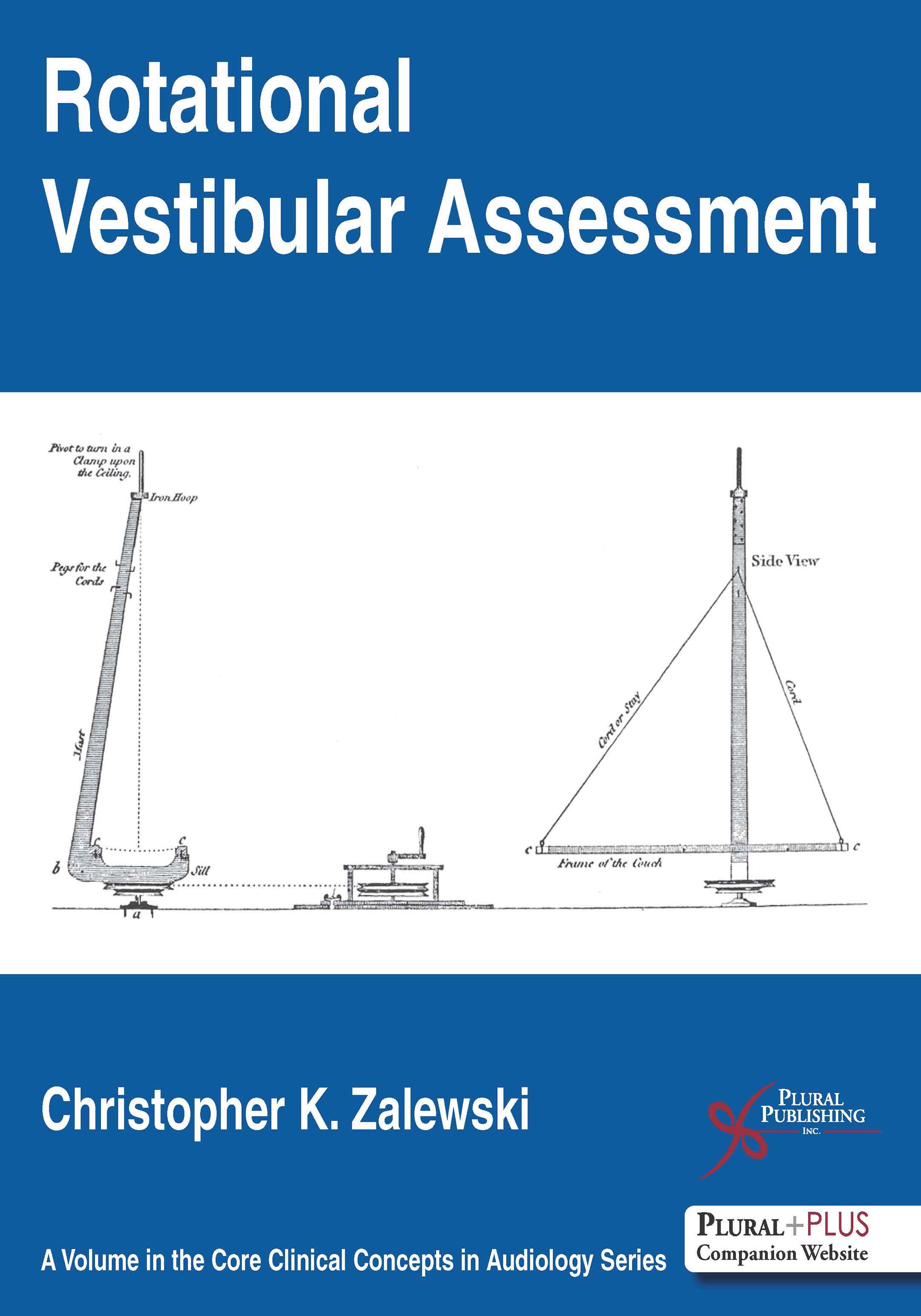
Rotational Vestibular Assessment
First Edition
Christopher K. Zalewski
Details: 322 pages, Full Color, Softcover, 8.5" x 11"
ISBN13: 978-1-59756-797-8
© 2018 | Available
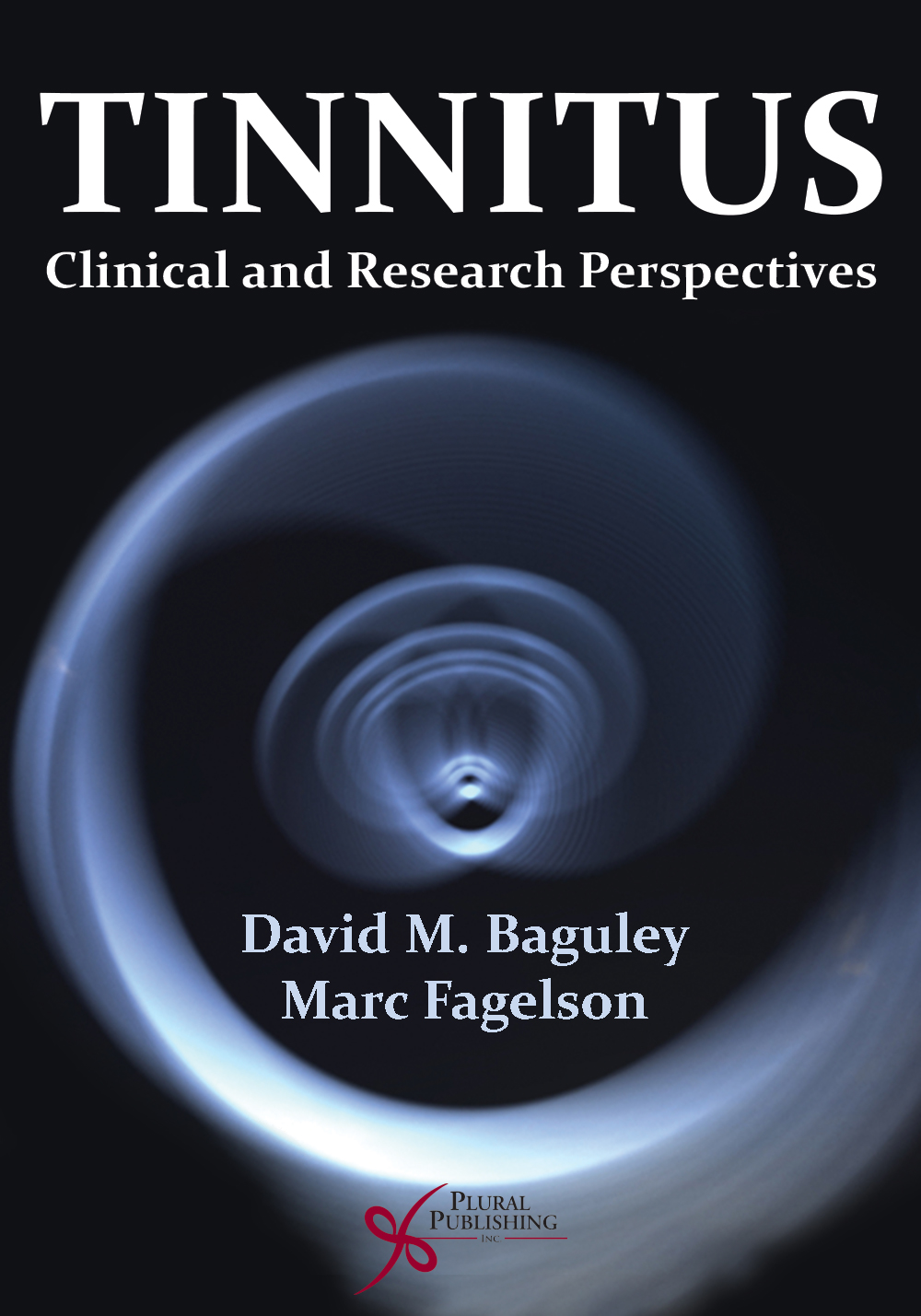
Tinnitus: Clinical and Research Perspectives
First Edition
David M. Baguley, Marc Fagelson
Details: 364 pages, B&W, Softcover, 7" x 10"
ISBN13: 978-1-59756-721-3
© 2016 | Available
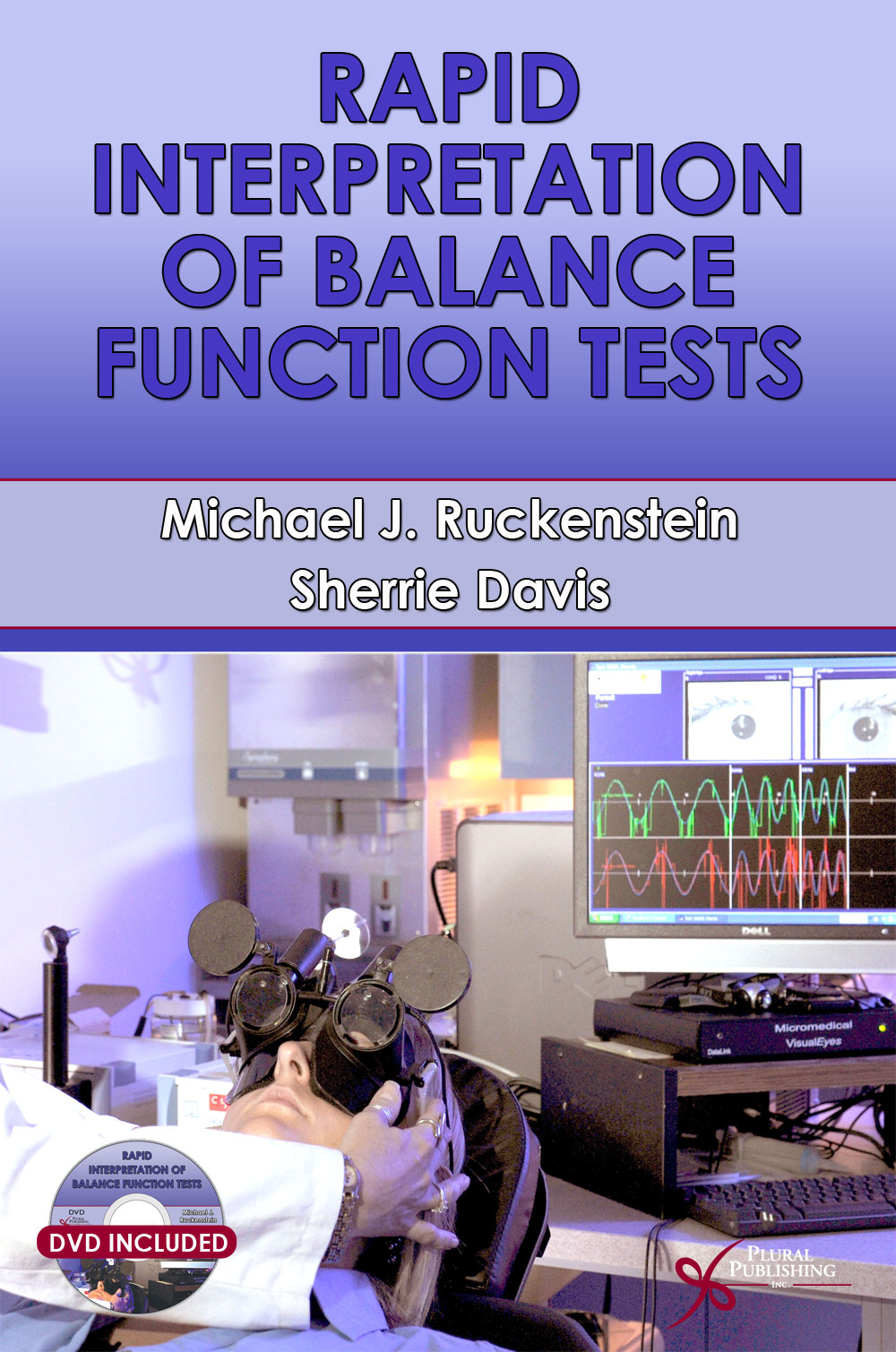
Rapid Interpretation of Balance Function Tests
First Edition
Michael J. Ruckenstein, Sherrie Davis
Details: 168 pages, B&W, Softcover, 6" x 9"
ISBN13: 978-1-59756-443-4
© 2015 | Available
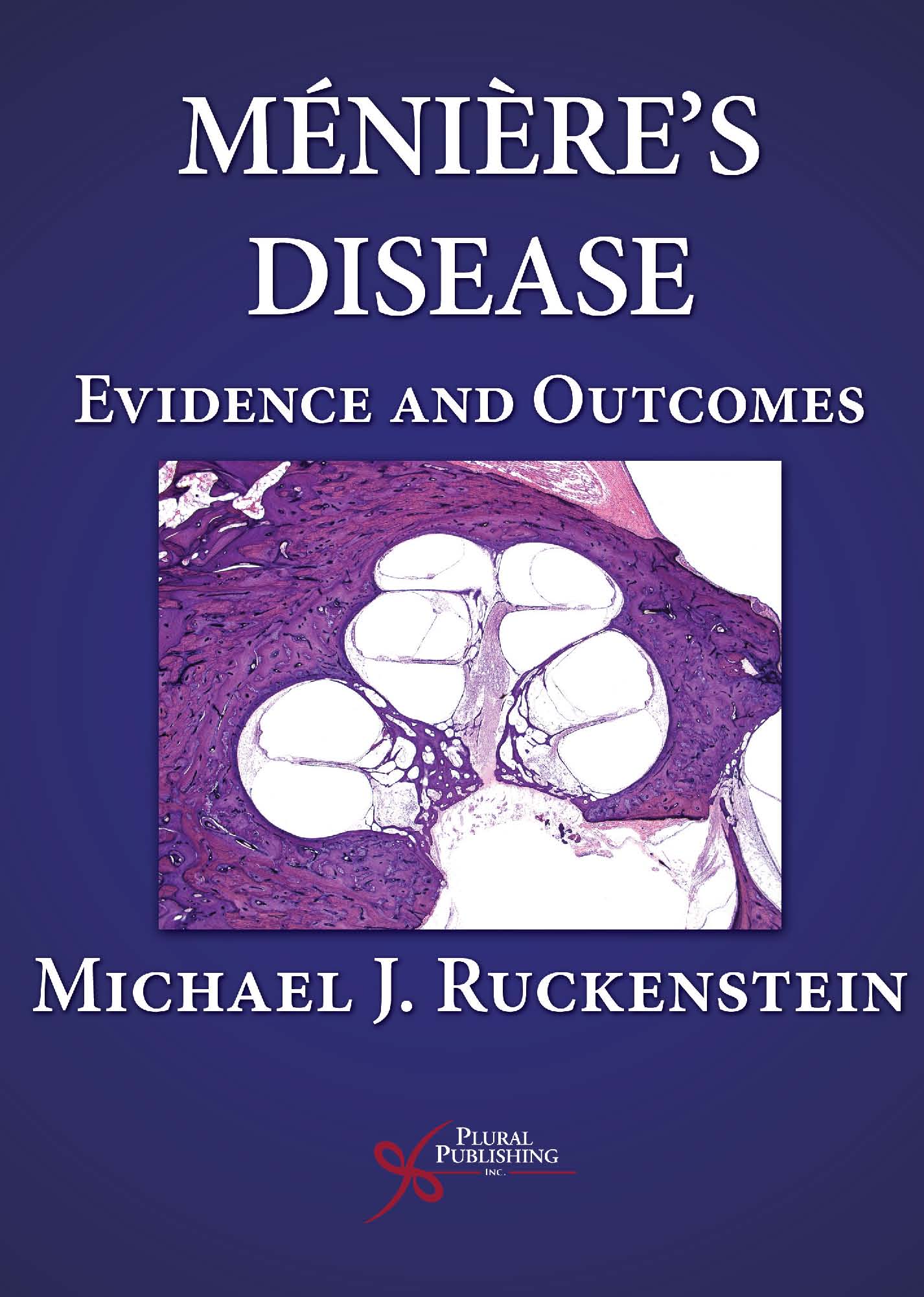
Ménière's Disease: Evidence and Outcomes
First Edition
Michael J. Ruckenstein
Details: 162 pages, 2-Color, Hardcover, 7" x 10"
ISBN13: 978-1-59756-300-0
© 2010 | Available
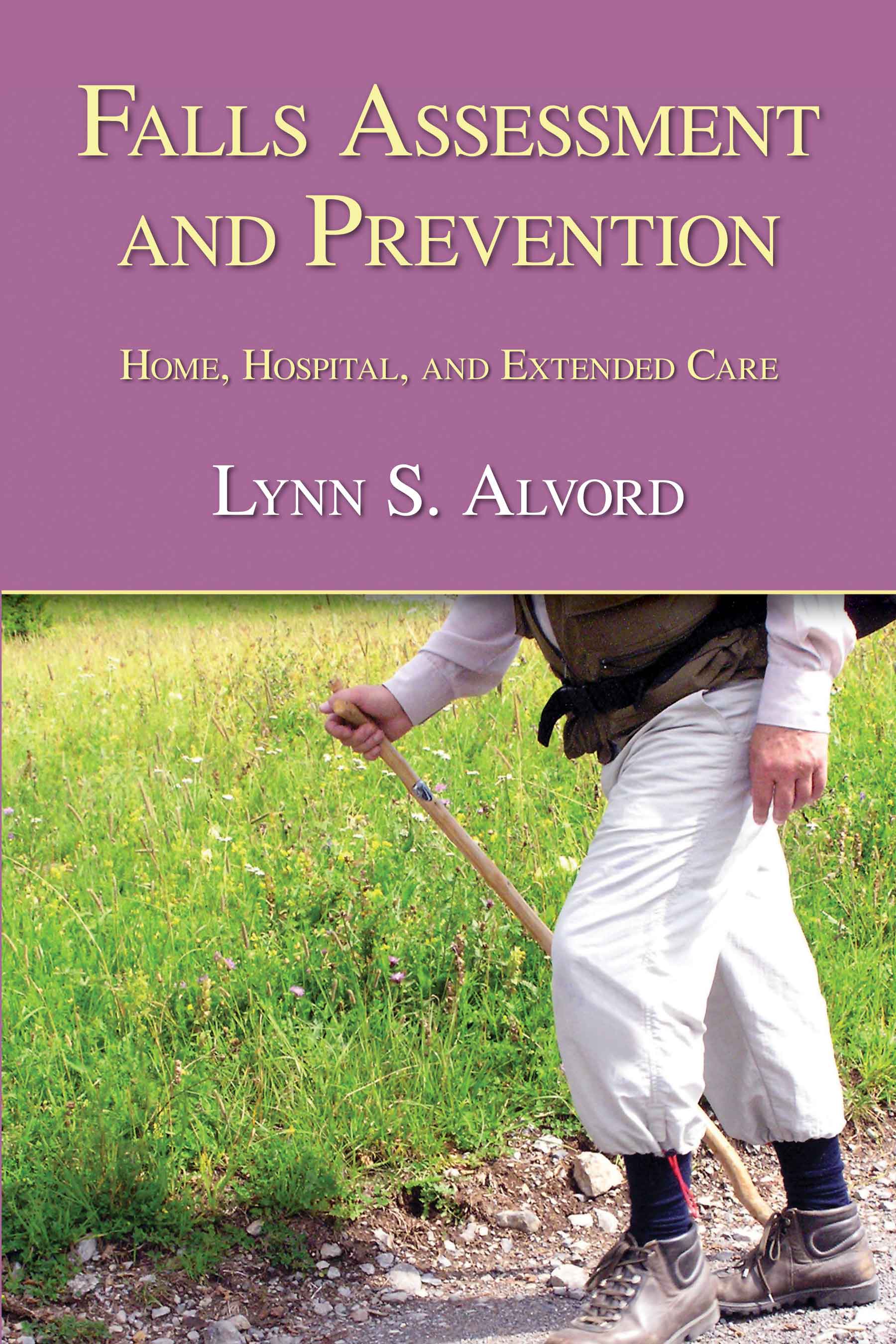
Falls Assessment and Prevention: Home, Hospital, and Extended Care
First Edition
Lynn S. Alvord
Details: 192 pages, Illustrated (B/W), Softcover, 6 x 9"
ISBN13: 978-1-59756-120-4
© 2008 | Available
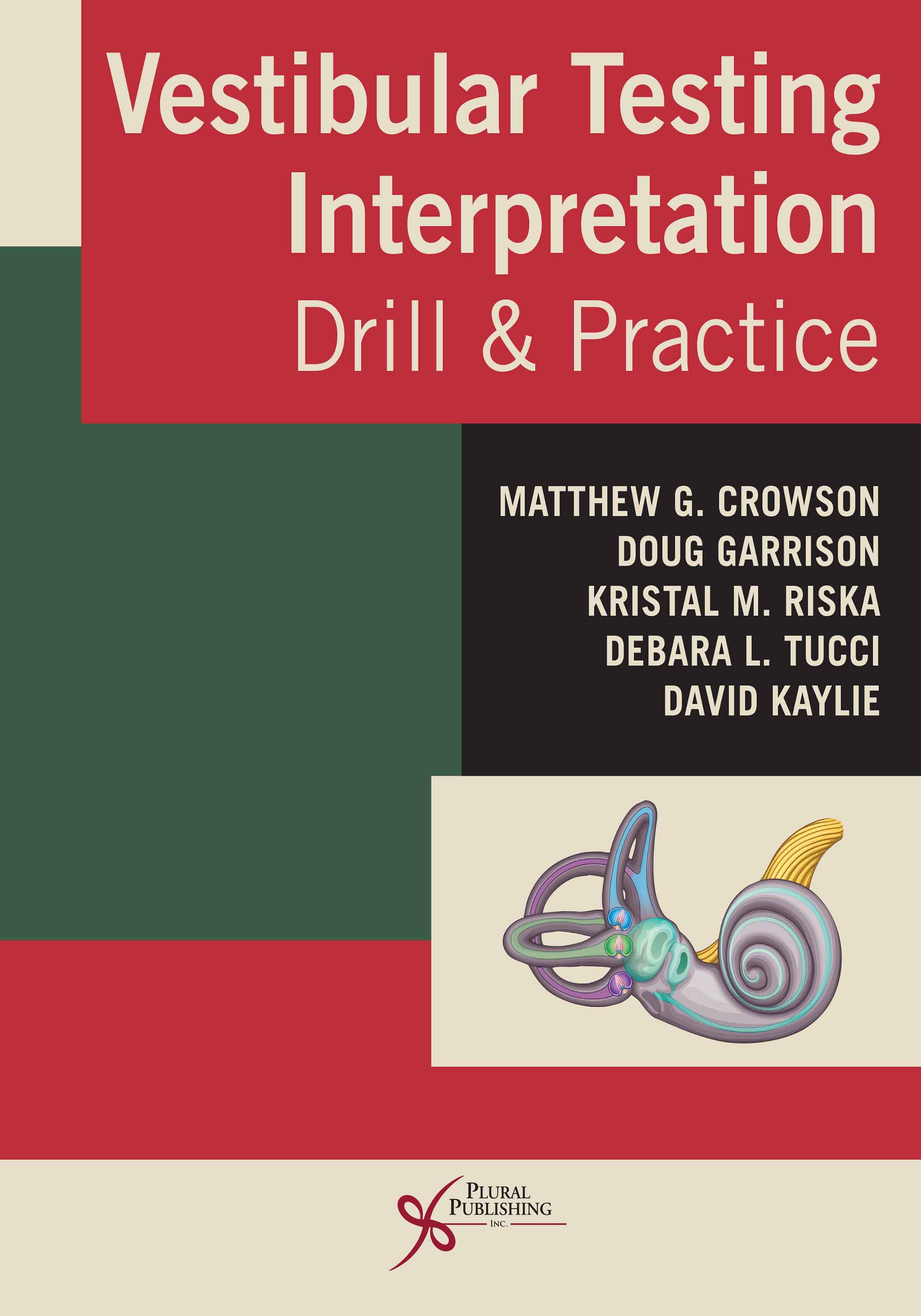
Vestibular Testing Interpretation: Drill and Practice
First Edition
Matthew G. Crowson, Douglas B. Garrison, Kristal M. Riska, Debara L. Tucci, David Kaylie
Details: 145 pages, B&W, Spiral, 8.5" x 11"
ISBN13: 978-1-63550-105-6
© 2020 | Available
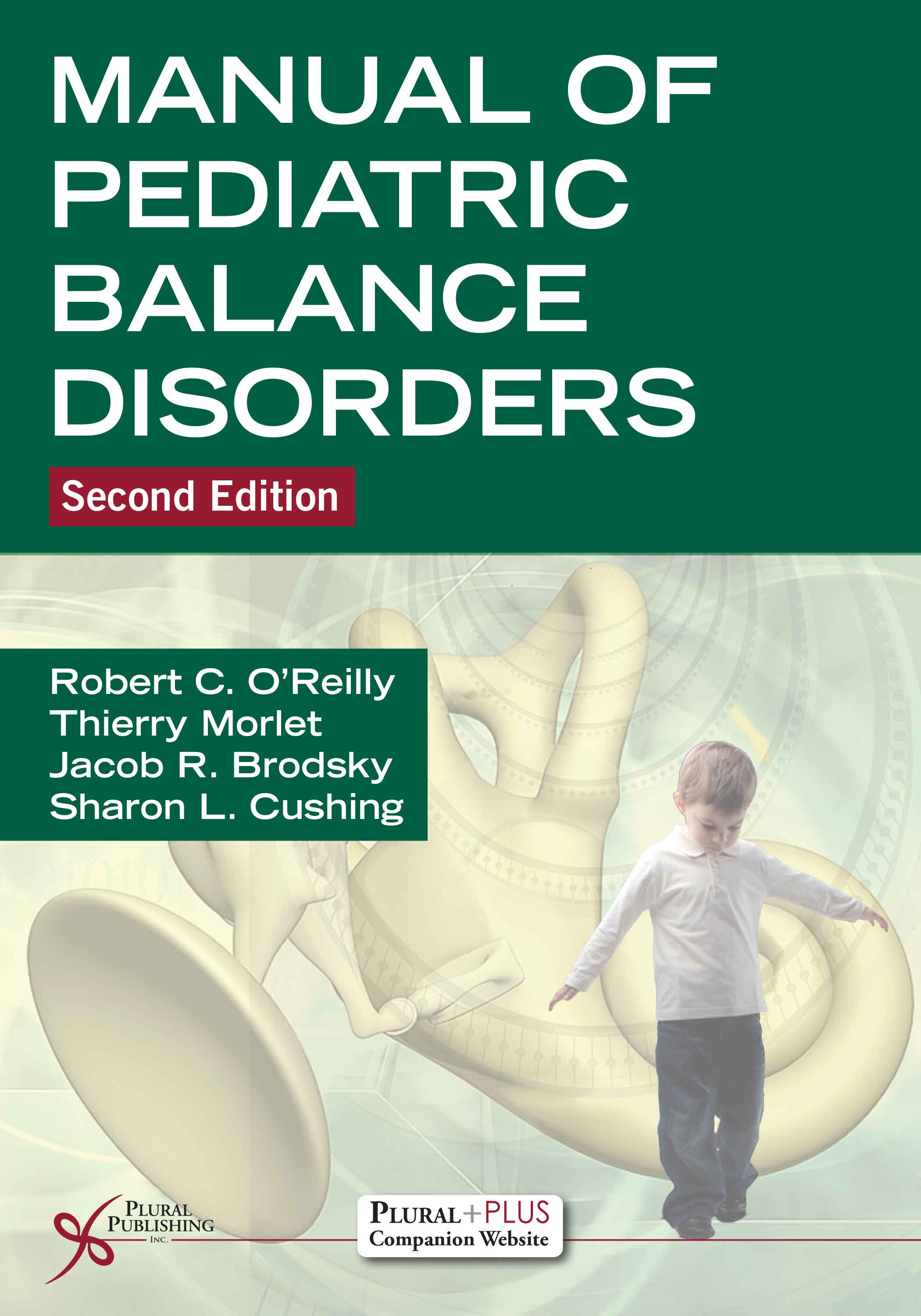
Manual of Pediatric Balance Disorders
Second Edition
Robert C. O'Reilly, Thierry Morlet, Jacob R. Brodsky, Sharon L. Cushing
Details: 458 pages, B&W, Softcover, 7" x 10"
ISBN13: 978-1-63550-146-9
© 2020 | Available
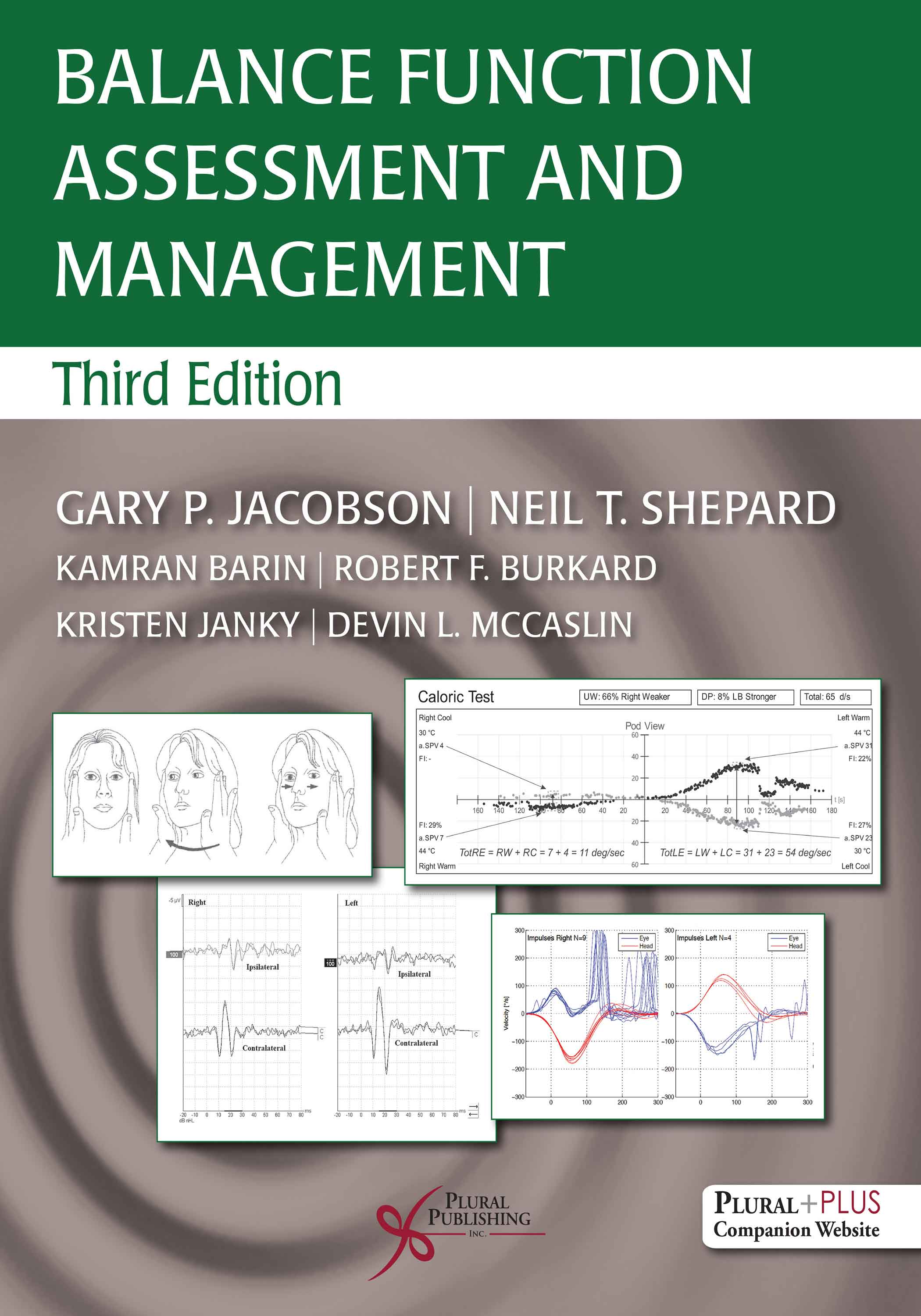
Balance Function Assessment and Management
Third Edition
Gary P. Jacobson, Neil T. Shepard, Kamran Barin, Robert F. Burkard, Kristen Janky, Devin L. McCaslin
Details: 717 pages, B&W, Hardcover, 8.5" x 11"
ISBN13: 978-1-63550-188-9
© 2021 | Available
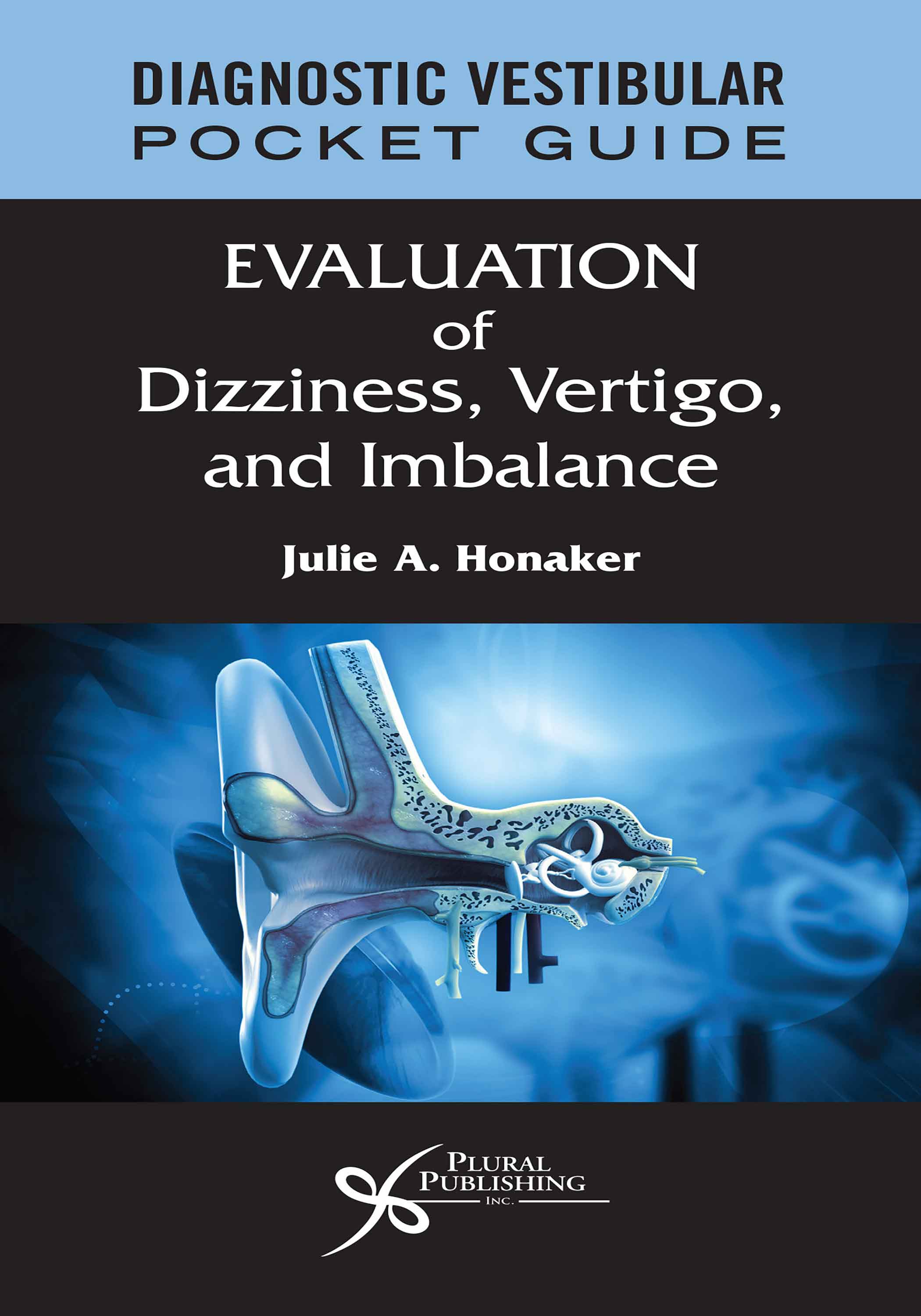
Diagnostic Vestibular Pocket Guide: Evaluation of Dizziness, Vertigo, and Imbalance
First Edition
Julie A. Honaker
Details: 288 pages, B&W, Softcover, 4.5" x 8"
ISBN13: 978-1-63550-312-8
© 2021 | Available

